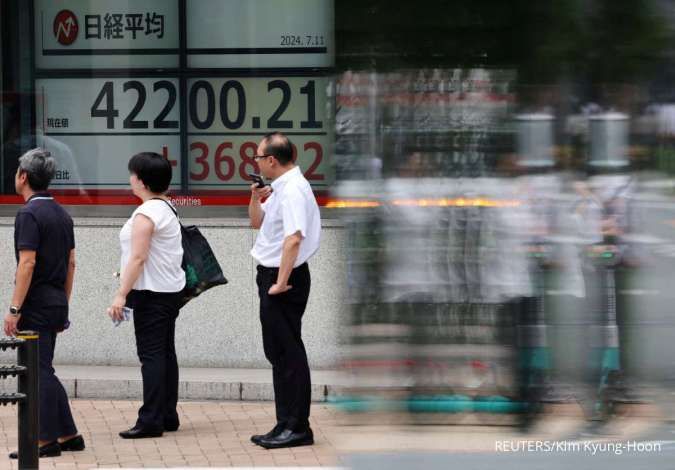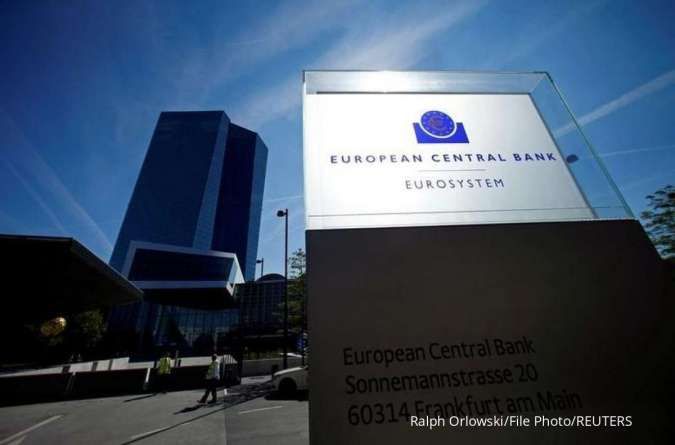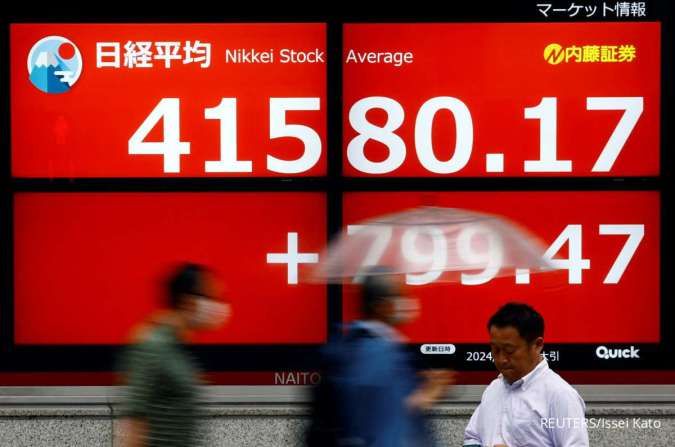CURRENCY - JAKARTA. Malaysia's currency hit a six-week high and stocks advanced for a fourth straight session on Wednesday ahead of a central bank policy decision, while a gauge of emerging Asian equities reversed course weighed by China on U.S. tariff plans.
An MSCI gauge of emerging Asian economies' shares ticked lower after advancing as much as 0.6% earlier, as stocks in China and Hong Kong fell after U.S. President Donald Trump said his administration was discussing a 10% punitive duty on Chinese imports.
China's Shanghai Composite Index and the blue-chip CSEI 300 Index declined around 0.9% each, while Hong Kong's benchmark Hang Seng Index slipped from a one-month high. China's yuan was down 0.2%.
The Malaysian ringgit rose 0.7% to 4.440 per dollar, its highest level since mid-December, while stocks added 0.6%, ahead of Bank Negara Malaysia's (BNM) monetary policy decision. The central bank is expected to keep its benchmark interest rate unchanged at 3% for the 10th consecutive meeting, a Reuters poll showed.
"External developments remain the main focus for the MYR, especially those related to the U.S. and China," analysts at Maybank said.
Read Also: Indonesia Close to Deal to Lift Apple iPhone 16 Ban, Bloomberg News Reports
Brian Tan, economics research head for Asian emerging markets excluding China at Barclays, drew attention to BNM's quarter-point rate cut in May 2019, which immediately followed Trump's comments on tariff hike on Chinese imports.
Tan said he would expect the BNM "to again respond in a similarly quick fashion, likely at the very next monetary policy meeting, to cut its policy rate by 25 basis points, once the next U.S. administration unveils significant tariffs".
In Singapore, traders await the Monetary Authority of Singapore's (MAS) first policy decision of 2025 later this week. Economists are split on whether the central bank will loosen policy or leave its settings unchanged to assess Trump's policies.
Singapore's dollar fell 0.2%, while stocks were flat. Indonesia's rupiah was unchanged, while stocks rallied for a sixth straight session, jumping more than 1%, led by mining and banking stocks.
Indonesia's chief economic minister said on Tuesday it will require natural resource exports to hold all their proceeds onshore for at least one year - a move that could boost the country's annual foreign exchange reserves by $90 billion.
The plans underscore "concerns about recent weakness in the rupiah", said Tan Jing Yi, market economist at Mizuho Bank.
Rupiah has lost more than 1.4% in value this year, becoming the worst performing currency in the region so far.
Highlights:
- Malaysia's Dec CPI up 1.7% y/y, below forecast
- Japan's Nikkei rises on Trump's AI investment plans
- Thailand's new financial business law to attract foreign funds to be submitted soon
/2018/09/21/1345853480.jpg)














